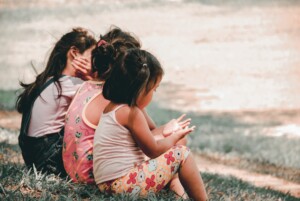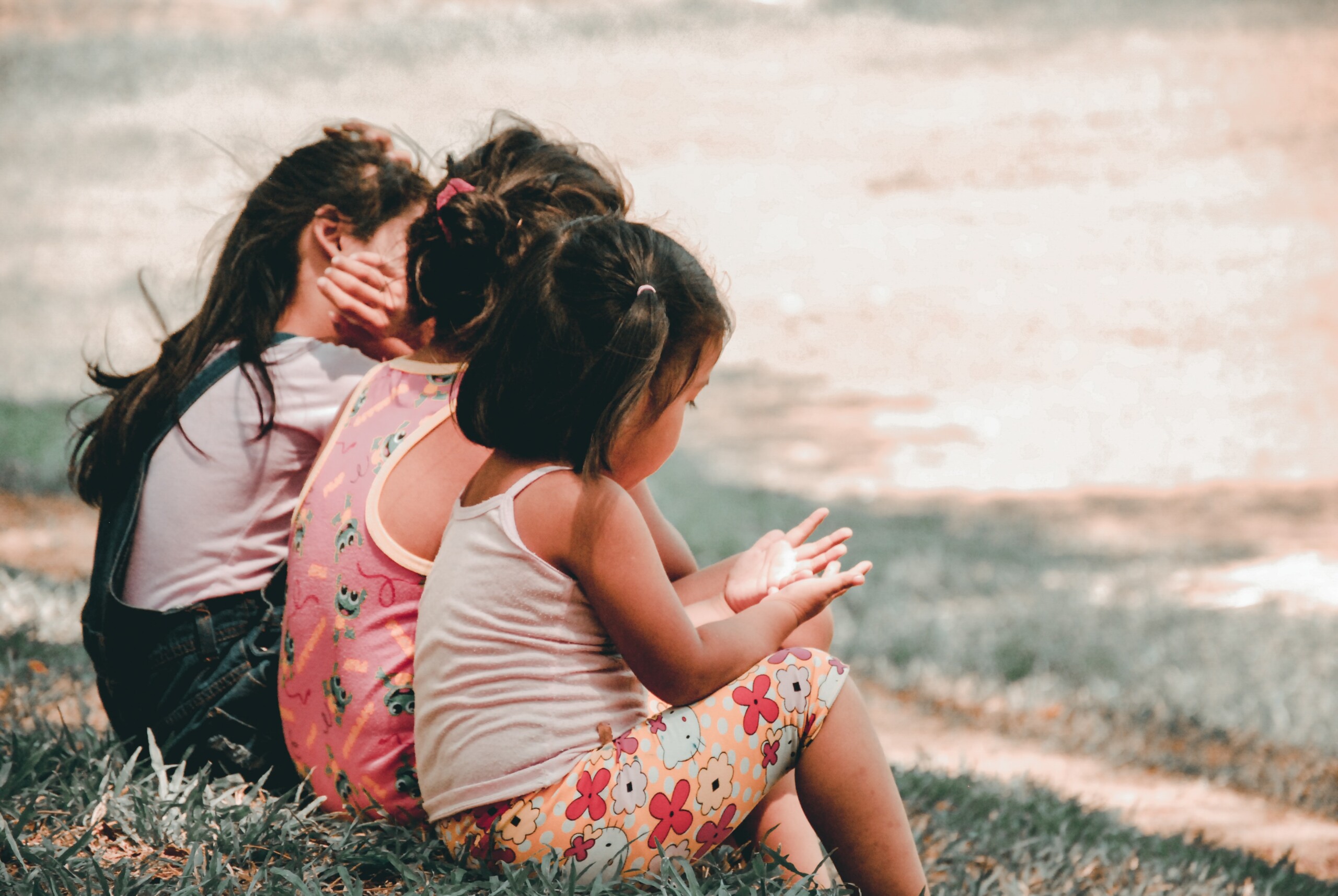 I had never given much thought to the subject of refugees until my first year of seminary. My fieldwork placed me among children of refugee families in the resettlement community in Clarkston, GA, on the east side of Atlanta, just outside the I-285 loop. As it so often happens in such situations, whatever time, energy, and love I dispensed there came flooding back to me a hundredfold; I was supposed to be helping the children with their homework in an afterschool program, but the biggest (and slowest) student in the room, the one learning the most urgent lessons, was of course me. I sat with these children in small chairs around knee-high tables and tried to explain social studies concepts like “democracy” and (God forbid) “manifest destiny” as I fell in love with those children. Love was the teacher. Give me just a few minutes and I will tell you some of what I learned, and an invitation to ask yourself if you hear God’s Spirit calling you to respond.
I had never given much thought to the subject of refugees until my first year of seminary. My fieldwork placed me among children of refugee families in the resettlement community in Clarkston, GA, on the east side of Atlanta, just outside the I-285 loop. As it so often happens in such situations, whatever time, energy, and love I dispensed there came flooding back to me a hundredfold; I was supposed to be helping the children with their homework in an afterschool program, but the biggest (and slowest) student in the room, the one learning the most urgent lessons, was of course me. I sat with these children in small chairs around knee-high tables and tried to explain social studies concepts like “democracy” and (God forbid) “manifest destiny” as I fell in love with those children. Love was the teacher. Give me just a few minutes and I will tell you some of what I learned, and an invitation to ask yourself if you hear God’s Spirit calling you to respond.
Clarkston, you may already know, is known to many as the “Ellis Island of the South,” an amazing community where thousands of refugee families from all over the world have begun new lives since the 1970s with “boat people” from Indo-China. Over the years, Clarkston has been a place of refuge for families from the Soviet Union in the late 80s, Kosovo in the 90s, Somalia, Cuba, and Laos in the first decade of this century; many of the children I got to know were in 2017 families fleeing violence and oppression from former homes in the Congo, Bhutan, Myanmar, and Syria. The UN Refugee Agency (UNHCR) reports that there are currently just under 80 million people across the world who have been forcibly displaced from their homes, of whom 26 million people are forced to cross borders to escape conflict or other humanitarian crises. Sadly, just about one percent of the world’s refugees are resettled in countries like the U.S. each year, and 50 percent of them are children.
While I was working in Clarkston, we also learned something about how refugee resettlement works in this country—the nuts and bolts, like who pays for what, and who does the work. The short answer is that the federal government helps to pay for a portion of it, but almost all of the work is done by local non-profit agency staff and volunteers. At the top of the power/money structure, the U.S. State Department in Washington sets the lid on the number of refugees allowed into this country. This quota determines the budget for refugee resettlement and this federal money flows to the states (in Georgia, there is a Department of Human Services Refugee Program) and eleven Voluntary Agencies (or “VolAgs”), which are non-governmental organizations, such as the Church World Service and Episcopal Migration Ministries, to name two. These VolAgs form the hub of broader networks of nonprofit organizations in local communities that actually coordinate the work of helping new Americans achieve self-sufficiency and successful integration into their new communities and country. State and federal money helps, but private donations and foundation grants are essential resources as well. In Georgia, there is a Coalition of Refugee Agencies, and their website has a list of some of the member organizations in the field. All of this work—especially that done by folks with boots on the ground—is what we church-folk call “ministry.”
As I sat doing arithmetic with my kids in Clarkston, there was some pretty frightening arithmetic going on in the larger geopolitical context. For FY 2017, the Obama administration had proposed a quota of 110,000 for 2017. But we shook our heads upon learning that one of the Trump administration’s first executive orders in 2017 was to cut that number in half and halved it again in subsequent years. From 2016 to 2020, the number of refugees admitted to the United States dropped by 86 percent; 15,000 was the quota for 2021, and even then, only 11,814 refugees were resettled in the U.S. in 2020. The downstream effect on the VolAgs and their networks was crushing. They had been geared up for 110,000 who never were allowed to come here. An 86% cut has meant 86% fewer clients, fewer state and federal dollars, and a massive constriction of resources and support. Virtually all of these VolAgs and non-profit agencies had to restrict operations, lay off staff, merge with other groups, and some that could not attract enough private support closed altogether. The missional rug had been pulled out from under them.
Today as I write to you, change is coming, and a huge challenge is taking shape. The early indications are that the new Biden administration is pledging to set the refugee ceiling to 125,000. Nationwide, resettlement agencies are making plans to restore their efforts to fulfill the biblical command to “welcome the stranger.”[1] But it will take time to ramp up the infrastructure once again to accommodate greater numbers, an effort that will depend heavily on volunteers, churches, and community partners to provide the support which refugees need as they resettle. The rebuilding will be challenging but also a wonderful opportunity for churches to pitch in and help. ECF stands ready to help you and empower your parish’s ministry in this larger effort. ECF Executive Director Lindsey Hardegree is as close as a phone call or email, ready to assist and guide you through what is a surprisingly simple grant application process.
Tons of data and statistics show that resettling refugees does not just help refugees; it is also advantageous for the country that takes them in. Clarkston is one case in point, but examples of refugees making remarkable contributions to their communities in the United States are not hard to find; refugee families have been attributed to revitalizing cities across the country. My time with the children in Clarkston was a microcosm of that macro. Over three years of seminary education, my afternoons there learning the lessons of love and inclusion, sharing and working together, gave me the deepest insight into the unexpected ways that God always enhances life when we choose faith over fear and show up with open hearts. My life has never been the same. It felt as if the families of these children came seeking nothing but life, safety, and a bit of joyful freedom to prosper. Instead, like the magi who came from foreign lands seeking the Christ child, they come bearing gifts. Their gifts changed me. If refugee children can change crusty old me, they can also change you and change the entire world towards God.
[1] Editorial Note: In mid-April 2021, this progress was slowed by the Biden administration.












